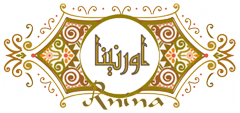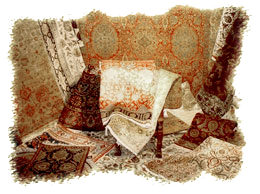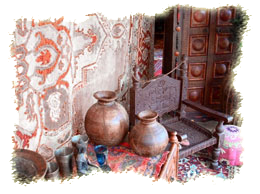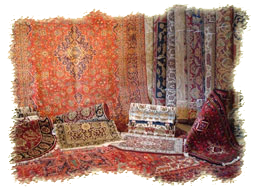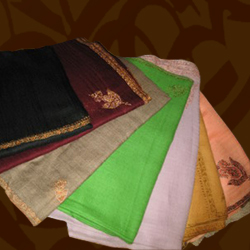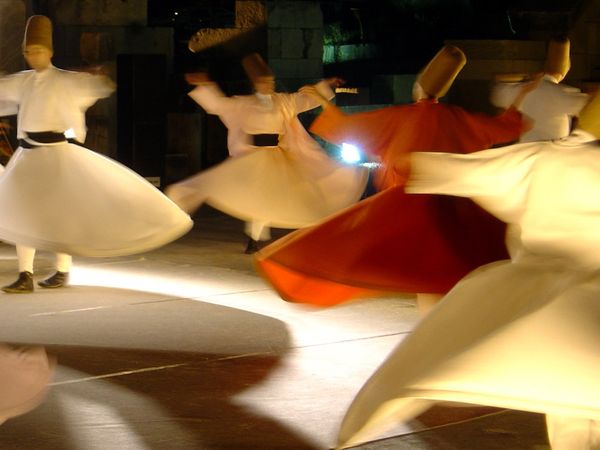
Sufi music has so many variations and differ according to the country, culture and path
The whirling dervish are an example the Egyptian Sufi music is another example Qawali Dhikr etc
All are different forms of sufi music and ritual and devotional acts
The whirling dervishes also known as the Mevlevi order which is a group of Sufi Muslims who use dancing whirling spinning as a way to meditate and to reach some sort of a spiritual mood
This ritual is very common and famous among Sufi's around the world being very common in Turkey as the origin of the Mevlevi order they are the followers of a man called Mevlana
Jalal Al-Din Al Rumi a famous Sufi scholar and a friar and a Dervish himself
A dervish is some one following the Sufi path (an ascetic Muslim order) known for their ausetirity and spirituality
They are similar to the christian friars.
Dervishes think of this dance as a way of meditation and remembering God
They think it helps to reach perfection and get rid of ego with surrender and love to God
The dancer is reborn as he takes his black cloack off.
Whirling spinning is how they challenge matter represented by gravity and focus on spirituality as their long hat represents the tombstone of their ego and through spinning and listining to God and music
The Dervish reaches to this state of mind.

The traditional old Sufi music band consists of 3-4 players only
They use drums daf tombak etc and the Ney simply
The ney is a wood reed flute but with a very deep and emotional sound
And may be Oud (lute) and a violin
Now, the modern Sufi music is played with almost any musical instrument
But the Ney remains the corner stone in all Sufi music as well as other wind instruments
Some has tried to mix it with flamenco or even made trance Sufi music and so
If you have never seen a ney it looks like a native American flute but the sound is different
Sufi music helps you to meditate and feel quit and peaceful
In some Sufi songs the rhythm gets faster and faster as well as the dancing
And the singer reaches high musical tones helping the audience and the dancers to feel a climax or a great feeling of ecstasy
Note that turkish syrian and Egytpian music each has it's own taste and mode in playing
They all share the use of the ney dancers a singer alone or with a chorus
The Singer Poems madih whick is the compliment and improvisation
In Turkish Sufi music the music can be played without singing
But Egyptian Sufi music depends on the singer in the first place
The singer which is called the monshisd is considered the most important person in the band as his singing influences the audience in many ways
The singer should be someone with powerful vocal abilities and someone who is able to sing the different arabian music scales and tones
Some traditional sufi singers don't prepare so many poems or songs and mainly depend on improvisation on stage in singing invocations and chants saying the names of God
praising God according his own taste in words and tones
The lyrics are manily poems about the love of God, praising God praising prophet Muhammed and other chants
Remember that Sufism is not Islam and Not all Muslims are Sufis
God didn't tell Muslims to dance whirl or use music to meditate or get closer to God
The Sufi muslims has created these rituals and practices by themselves as a way to worship God
Some Muslims dislike the Sufi path and others just don't
The use of music and dancing isn't considered a devotional act or worshipping praying by many Muslims specially the Sunni Muslims
Some Muslims however listen to Sufi music just as another music genre without any religious importance
The use of beautiful and powerful voices is important in Islam in many other things such as Quran recitation, Athan (call for prayer) and the art of "Nasheed" and chants which is purely vocal songs without music at all, mostly religious.
